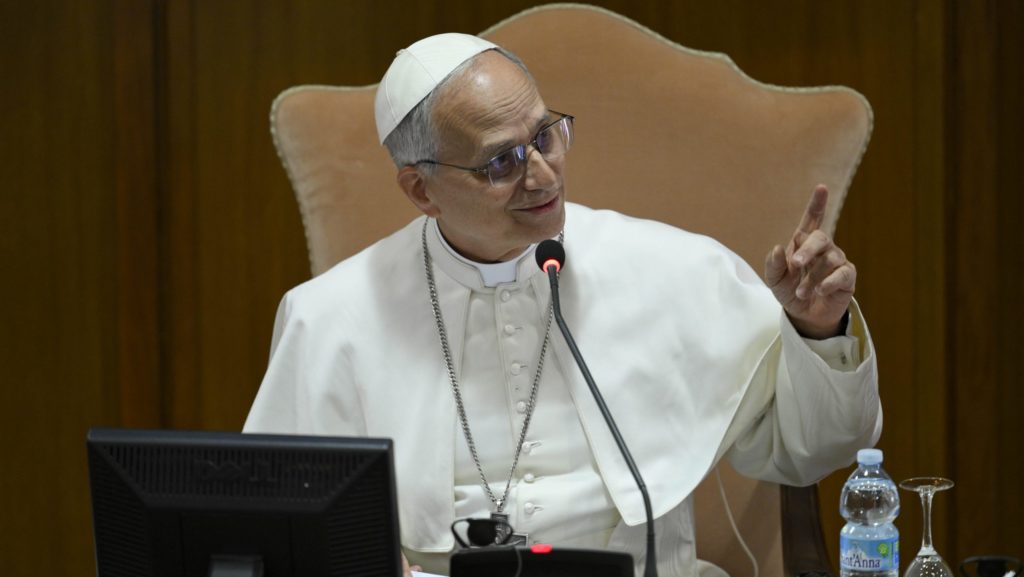In a meeting with the College of Cardinals two days after his election to the papacy, Pope Leo XIV answered the question the world had been asking: Why Leo?
“I chose to take the name Leo XIV. There are different reasons for this, but mainly because Pope Leo XIII in his historic encyclical ‘Rerum Novarum’ (‘Of New Things’) addressed the social question in the context of the first great industrial revolution,” said Leo at the May 10 gathering.
“In our own day, the Church offers to everyone the treasury of her social teaching in response to another industrial revolution and to developments in the field of artificial intelligence that pose new challenges for the defence of human dignity, justice, and labor.”
With these words, Leo signaled his intention to do for our times what Leo XIII (who reigned from 1878 to 1903) did for his.
That doesn’t mean Leo will repeat his predecessor’s famous encyclical verbatim. But we can expect him to examine the current industrial revolution underway through the lens of the social doctrine of the Church, which is summarized masterfully by “Rerum Novarum.”
The principles of that doctrine, Leo XIII wrote, include solidarity, subsidiarity, a just wage, the equal distribution of wealth, proper care for workers, and so on. There have been multiple follow-up encyclicals to Rerum Novarum, updating and applying those principles to new situations and concerns, such as Pope Pius XI’s “Quadragesimo Anno” (“In the 40th Year,”1931) and Pope St. John Paul II’s “Centesimus Annus” (“The Hundredth Year,” 1991).
Earlier this year, Pope Francis laid out the Church’s reflection on this subject in “Antiqua et Nova,” a document “On the Relationship Between Artificial Intelligence and Human Intelligence,” which cited several of Francis’ past writings and speeches.
In it, the late Holy Father called for “person-centered AI” and insisted that new technologies be used for the betterment of humanity, not its detriment. I believe that Leo will begin with that foundation and expand it, adding his own perspective and understanding of the times we live in.
Because Leo was born in Chicago, it stands to reason that he will have a particularly significant experience of a country immersed in digital technology. He’s already demonstrated he’s as familiar as any of us with digital technology and how ordinary people — as well as those at the helm in Silicon Valley — use it.
As pope, he will also have direct access to the tech titans building AI platforms, which should allow him to influence (to a greater or lesser extent) the development of the technology.
Exercising such an influence will not be easy or automatic. Market forces play a large part in how these technologies and platforms are developed. But given Leo’s origins, the key players in the tech industry should find a certain easiness and familiarity dealing with an American pope.
Understanding our current “revolution” will be one of his main priorities — helping humanity navigate the shifting currents and challenges as we face what some important figures in the industry have called the single most epochal change in centuries. Figures like Elon Musk, Stephen Hawking, Bill Gates, and Eliezer Yudkowsky have warned of the existential risks associated with this new technology, signaling that we need guardrails and courageous moral leadership in order to avoid a major catastrophe for all of humanity.
While the European Parliament has approved the AI Act for Europe, which lays down different rules for the use of AI depending on the perceived risk they pose, there is nothing similar in other parts of the world. Recently, Congress passed the “Take it Down Act” in order to regulate the presence of “deep fakes” on social media (videos, photos, or audio recordings that appear real but have been created or manipulated with AI). The bill is expected to be signed into law by President Trump.
This is a great beginning, but more has to be done. In the absence of a universal consensus concerning the ethical dimensions to AI, the voice of the Catholic Church in general, and that of Leo particularly, will be a rallying call to use technology in a responsible and truly humane way.
Perhaps the most pressing issue facing us all is the achievement of what is known as Artificial General Intelligence (AGI), which can be described as the moment in which large AI platforms are able to perform any conceivable task relating to intelligence at a human level.
Depending on how one AGI is defined, some developers speculate that we are three to four years away. Others are more conservative, such as Demis Hassabis, co-founder and CEO of DeepMind, which was purchased by Google in 2014 and is one of the most successful AI platforms to date.
Hopefully under Leo, the Catholic Church can work with people like Hassabis to help the world understand and control the development of AGI as a tool in order to benefit humanity, rather than destroy it. Another important voice is MIT’s Max Tegmark, a pioneer in machine learning and founder of the Future of Life Institute.
The clarity and speed with which Leo has spoken about the new industrial revolution so far is a sign that we can expect great things from his pontificate. But it will fall to the rest of us to follow his lead and help steer digital technology in the right direction — that which inspires all of humanity and promises to help men and women to flourish as human beings, in relationship with a heavenly Father.

